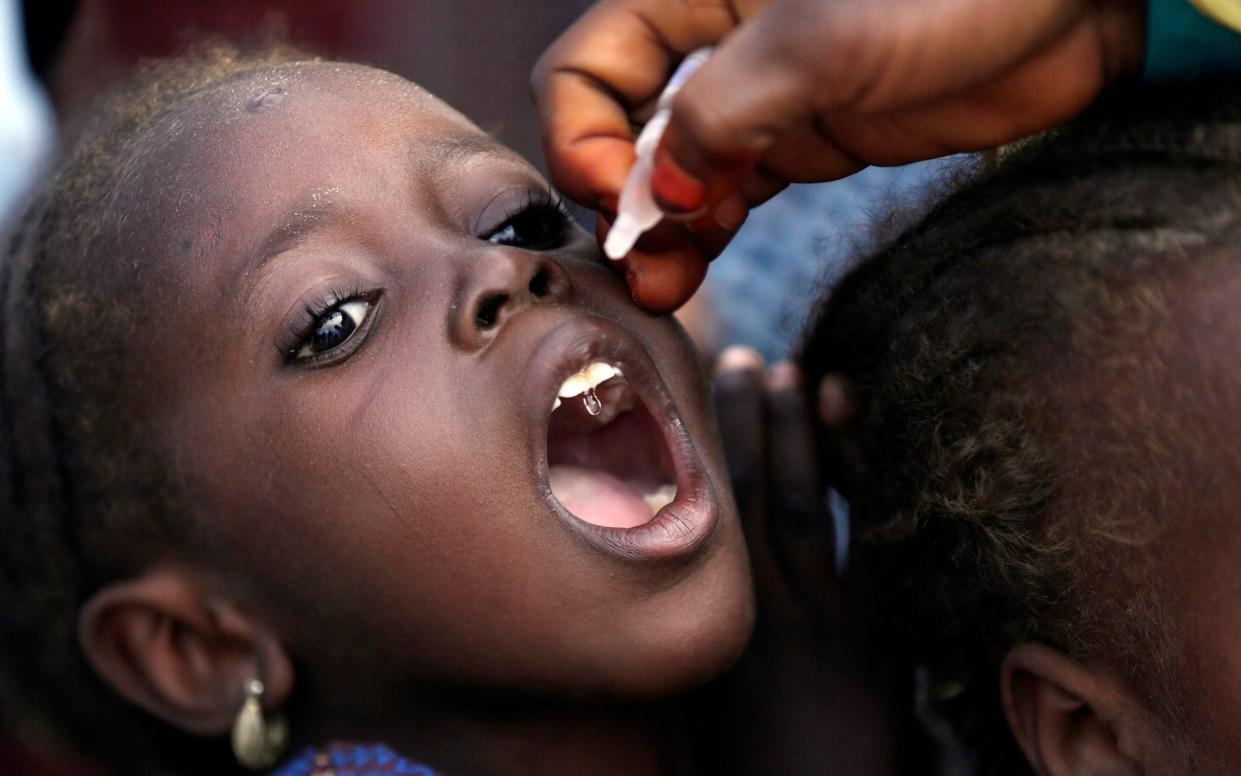Mozambique records first wild polio case for three decades

Mozambique has declared its first case of wild polio in three decades, in what is southern Africa's second imported case of the crippling virus this year.
An unnamed child in the northeastern Tete region began suffering paralysis from poliovirus in late March, the World Health Organisation said.
Genetic analysis has shown the newly confirmed case is linked to a strain that has been circulating in Pakistan in 2019, echoing a similar case reported in Malawi earlier this year.
A global eradication programme spanning more than three decades has pushed the virus to the edge of extinction, but the final goal has remained stubbornly elusive.
"The detection of another case of wild poliovirus in Africa is greatly concerning ... It shows how dangerous this virus is and how quickly it can spread," said Matshidiso Moeti, the WHO's regional director for Africa.
The paralysis is the first case of the wild-type polio virus in Mozambique since 1992. The country has in the meantime suffered small numbers of vaccine-derived cases, where weakened virus used to make polio drops mutates in the community to form a harmful strain again and infect unvaccinated children.
A statement from the global eradication scheme said: “While this detection of another [type-1 wild poliovirus] in the southeast Africa region is a concern, it is not unexpected following the Malawi detection in February and further underscores the importance for all countries to prioritize immunisation of children against polio.”

Wild poliovirus is endemic in only Afghanistan and Pakistan. The latest case will not affect Africa's poliovirus-free certification status which was granted in August 2020, because the strain came from Pakistan.
“However, any child paralysed by polio is one too many,” the Global Polio Eradication Initiative (GPEI) said.
“The polio eradication programme has seen importations from endemic countries to regions that have been certified wild poliovirus-free in the past and has moved quickly to successfully stop transmission of the virus in these areas.”
Polio invades the nervous system and can cause irreversible paralysis within hours. It cannot be cured, but infection can be prevented by vaccination.
A dramatic worldwide reduction in cases in recent decades has been due to intense national and
regional immunisation campaigns in babies and children. Cases have fallen from around 350,000 per year in the late 1980s, to only a handful annually.
Earlier this month, Bill Gates, the Microsoft founder and philanthropist who has invested billions in the fight against polio, said it would be “tragic” if the disease made a comeback.
“If we fail, well it's very tragic because then it spreads back across the world and eventually you have what you had before 1988, which is hundreds of thousands of kids getting paralysed,” he said at an event in London. “So you either win or you lose.”
Protect yourself and your family by learning more about Global Health Security

 Yahoo News
Yahoo News 
